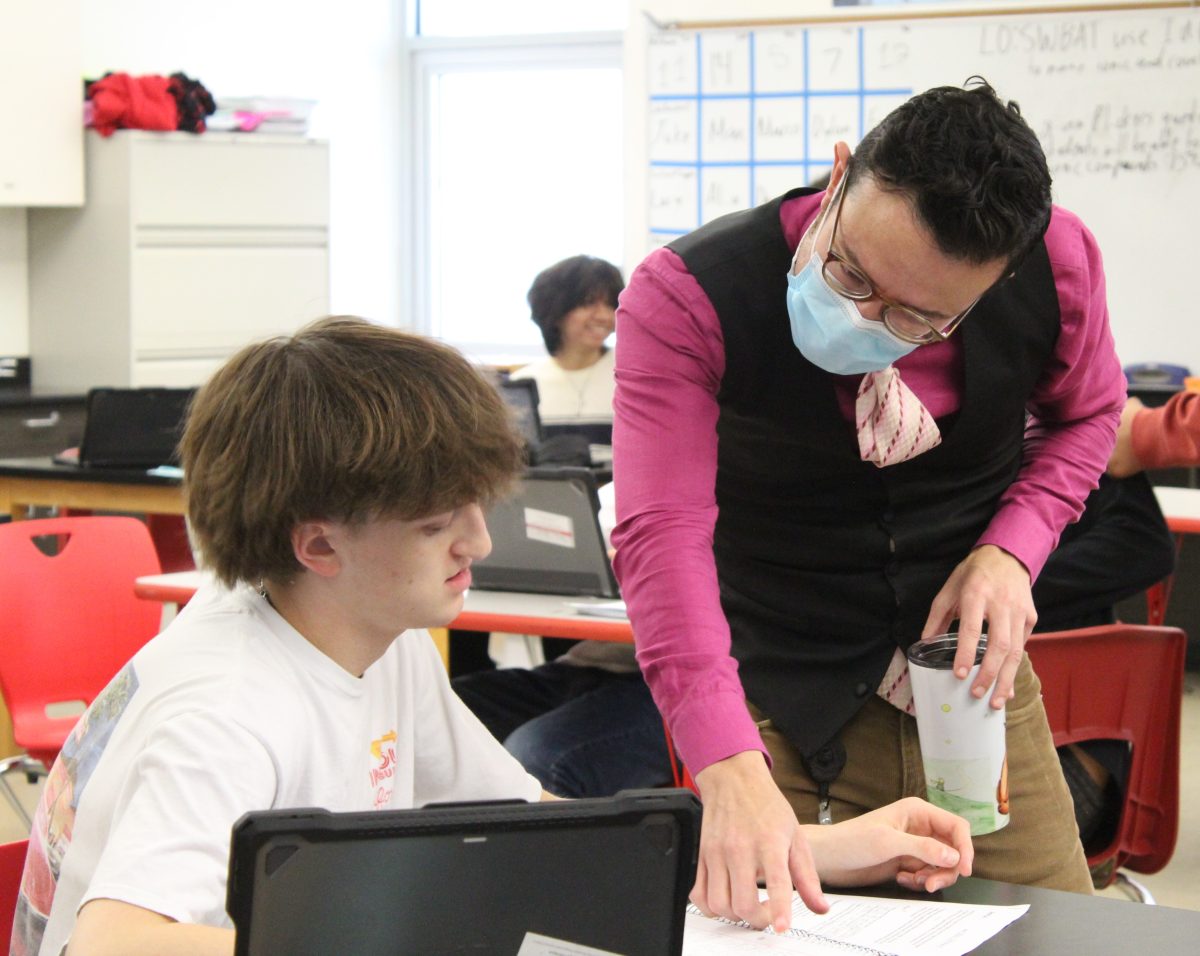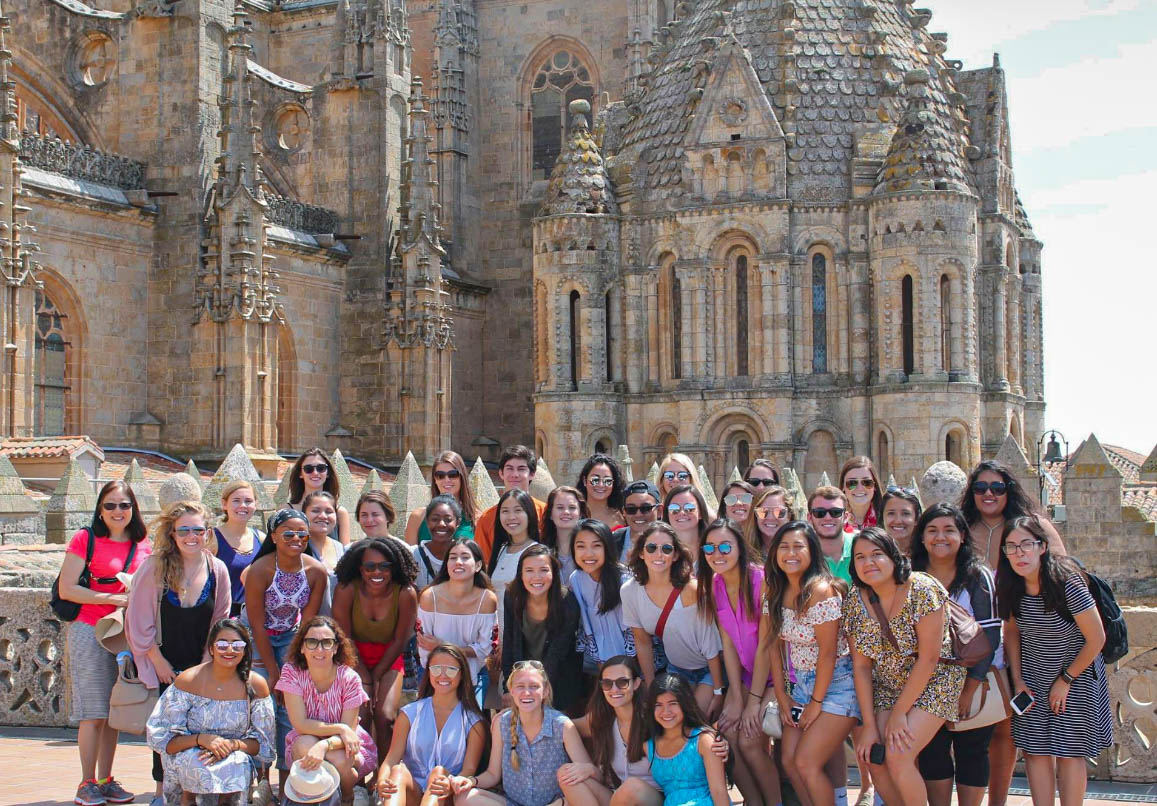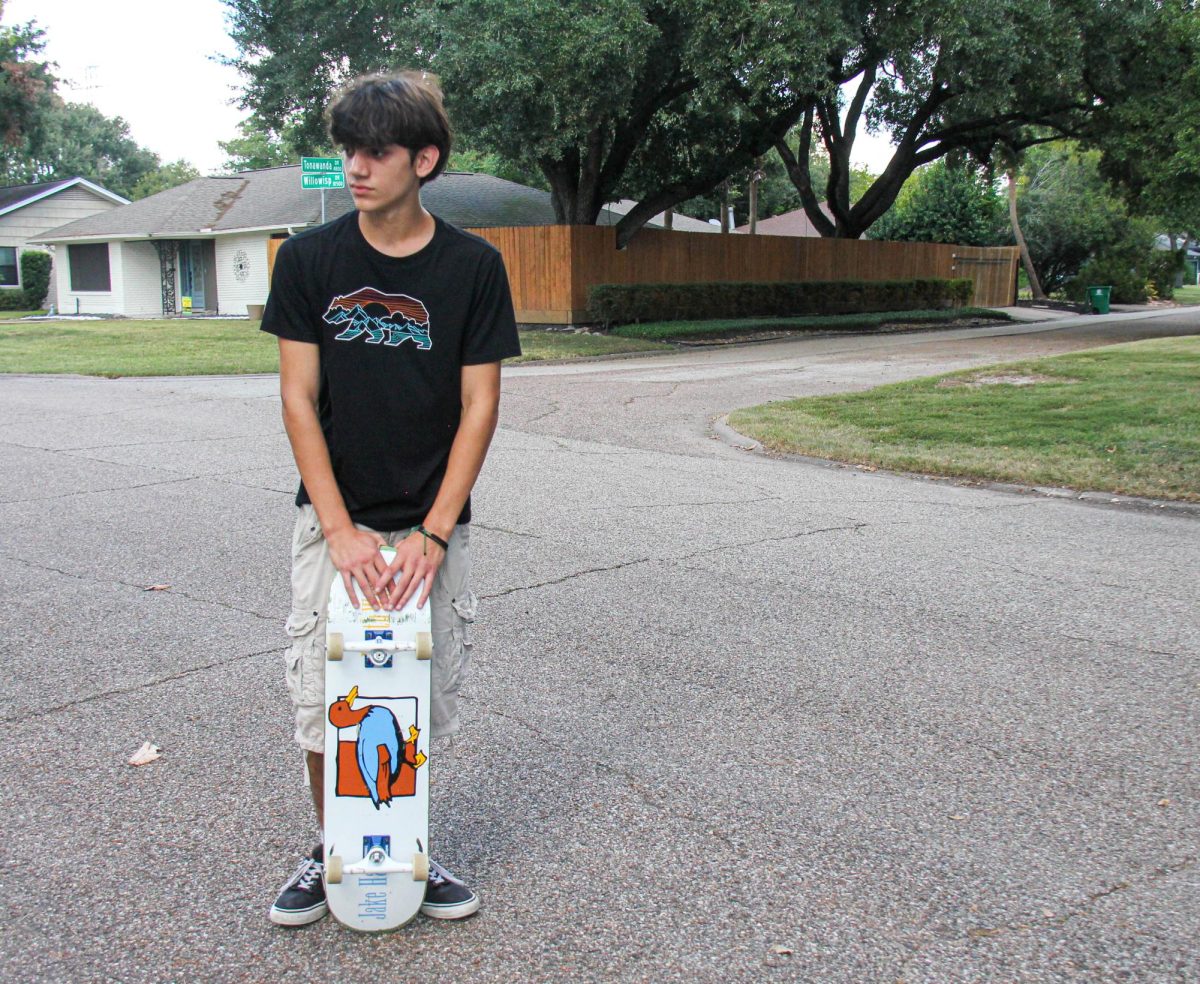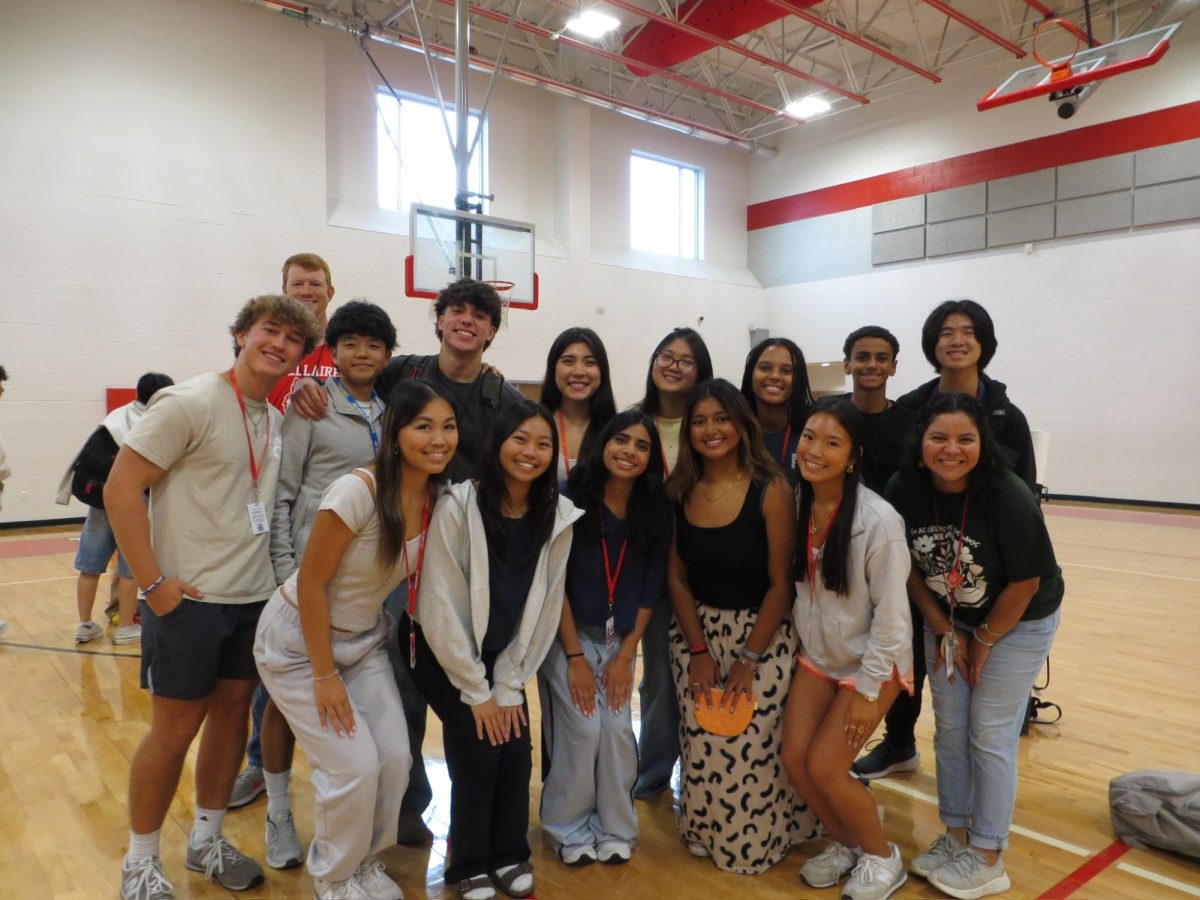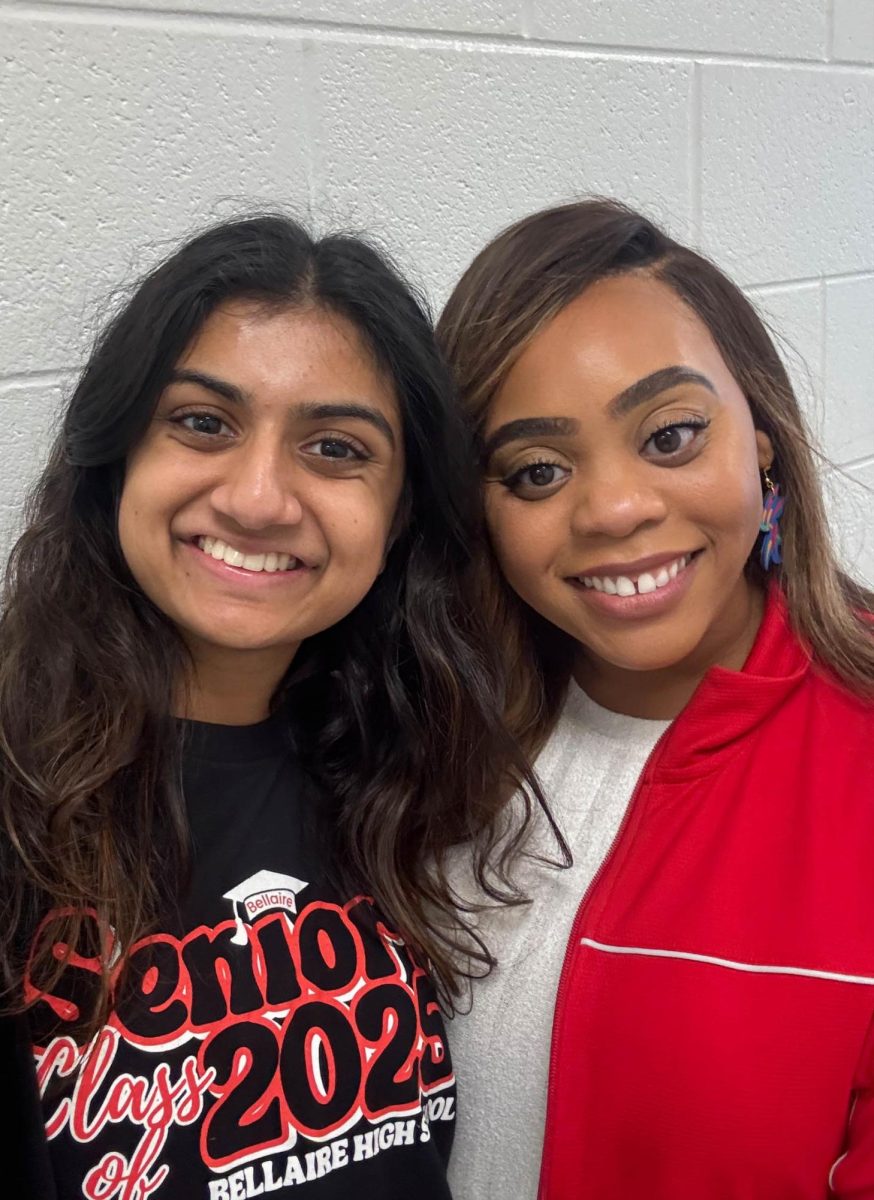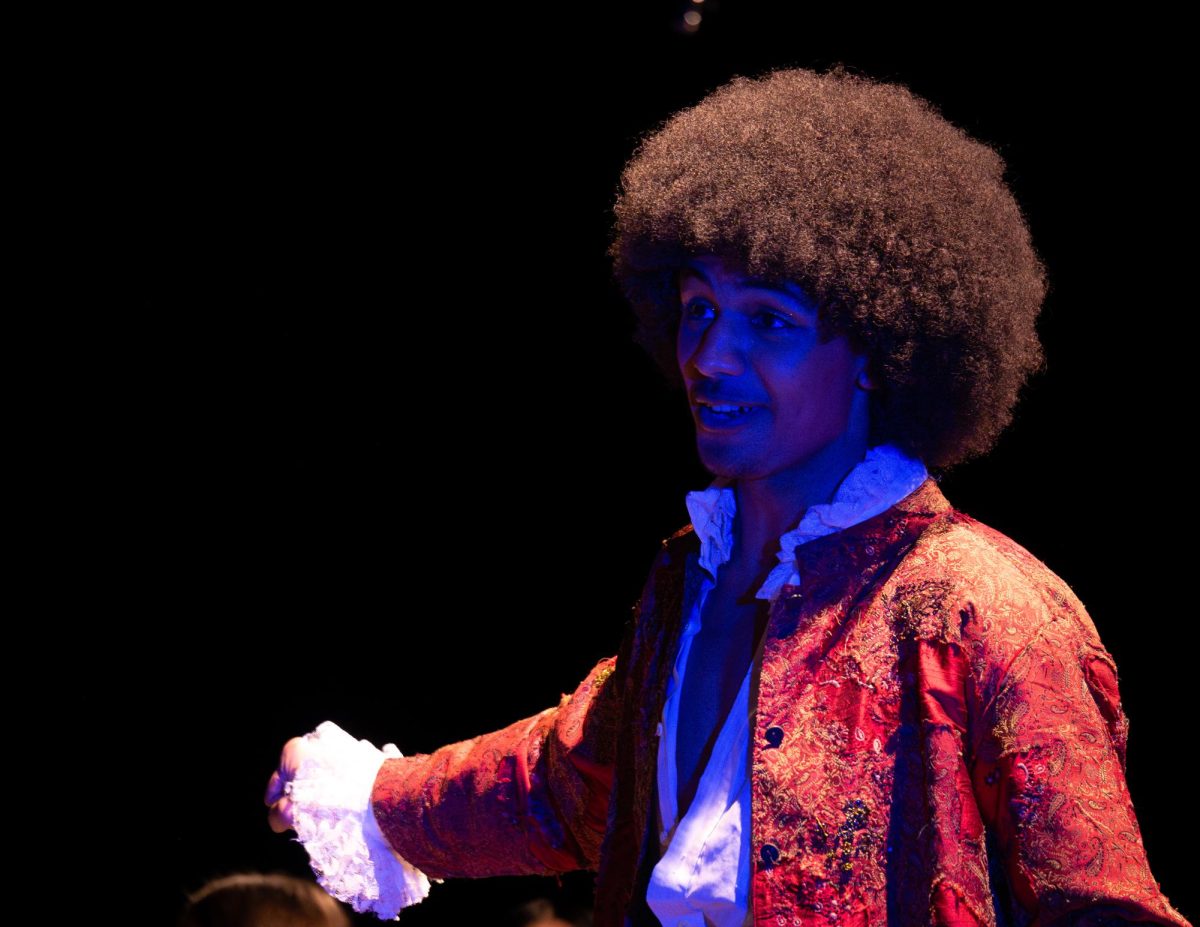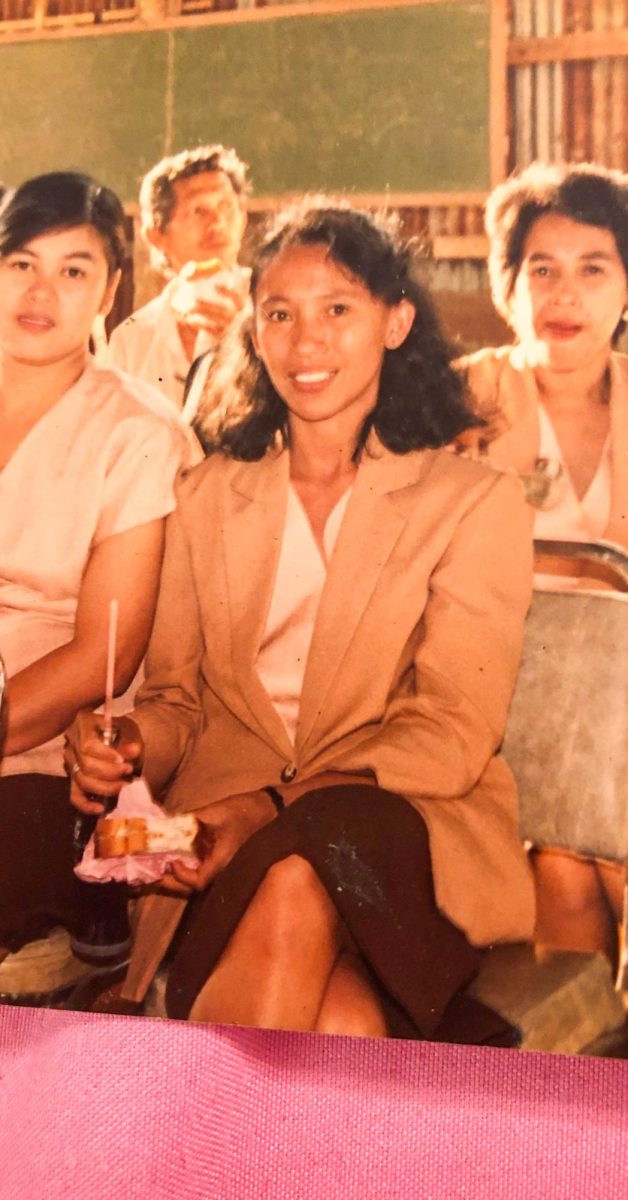Toward the end of class, a student curses him out.
But he doesn’t yell. He doesn’t order him to go to the principal’s office. He doesn’t snap back.
Instead, he forgives.
Instead of a direct confrontation, Robert Morales waits until the end of the class to pull the student into the Clear Creek High School hallway to offer him the chance to explain himself. Instantly, the student breaks down and confides in Morales that his grandmother is terminally ill. The student had found out just yesterday.
“He had to let out that steam somewhere,” Morales said. “I showed him my kindness, and it got him through some aspect of that.”
Morales, first-year OnRamps chemistry teacher, has faced defiance repeatedly during his 10 years of teaching. However, his approach to discipline focuses on empathizing with students instead of criticizing them.
“You should have chances to make mistakes,” Morales said. “You should have chances to be forgiven.”

But, for Morales, that is just the first step. As a “facilitator,” he strives to provide his students with the opportunity to change.
“Facilitation is improving the person as a person,” Morales said. ”It’s about personal growth. It’s about improvement.”
Keeping the big picture in mind, Morales knows that his actions may have a lasting influence on his students.
“I [might] do something that they will remember forever that I’m going to forget in the blink of an eye,” Morales said. “So I try to be a very conscientious person. I try to listen instead of jumping down [someone’s] throat. I have promised my students that I will forgive them every day.”
His approach toward his students’ outbursts stems from his educational past. He originally majored in anthropology at the University of Texas at El Paso but later shifted his focus to psychology due to his fascination with its human aspects. However, a pivotal conversation with his chemistry professor, Dr. James Becvar, led to a final shift in his interests.
The first time Morales walked into Becvar’s classroom, Morales noticed a chemistry book from 1916 lying on the professor’s desk that he speculated would have element names from the past.
“Did you know we used to call niobium, columbium?” Morales asked.
Becvar admitted he didn’t, and together, they thumbed through the book to verify Morales’ fun fact.
“It was so cool that a professor could be taught something from me, a student,” Morales said.
That experience served as the cornerstone for Morales’ teaching philosophy, one that revolves around the concept of conversation – an approach where students engage in dialogues with both him and their peers.
“I want the students to be able to speak,” Morales said. “You all teach me stuff, too. That’s what teaching is. It’s back-and-forth.”
Morales said he sees each student’s voice as a unique building block that enhances the collective comprehension of a concept.
“You get to see the little spins on it, the little ideas, the little ways of handling it that a single person has come up with that nobody else has come up with,” Morales said. “It can show a perspective that can work for someone else, or it can show a perspective that someone else can come to understand and integrate into their worldview.”
His student, sophomore Liyan Feng, said he finds these conversations to be an engaging way to start the class.
“I always look forward to it,” Feng said. “It’s always very interactive. I like answering the questions to see if I actually understand.”
Morales’ teaching philosophy even extends to his attire.
“I always try to dress as best I can,” Morales said. “I want my students to know even in my physical appearance, I am willing to put in the work for them.”
Morales said he hopes this will help him earn the respect of his students and inspire them to put a similar effort in class.
“[Respect] is important since it’ll make the desire to learn the material become more present,” Morales said. “If you’re motivated by relating to the teacher, relating to the material, it’s going to become more important and worthwhile to you.”
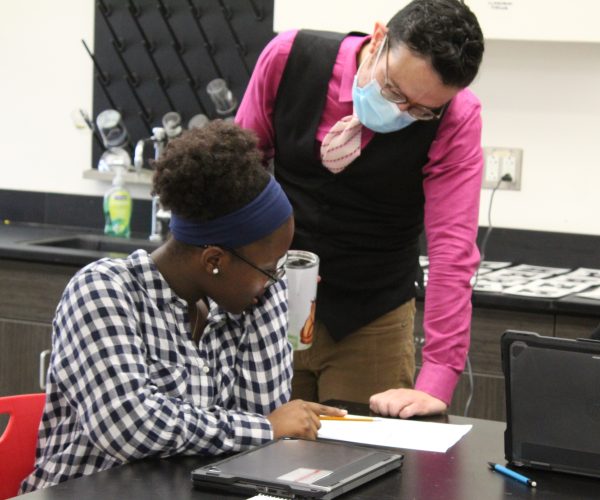
For sophomore David Chen, Morales’ efforts have made him a better student.
“He inspires us to be good at chemistry,” Chen said. “I pay more attention. It’s hard to turn away from a lesson when it’s a guy in a pink suit teaching.”
Morales understands that respect is helpful for being a teacher, but being a facilitator requires something more. That’s why the most important thing he wants his students to get out of his class is love, which he calls “the most powerful force.”
“When people believe things, it is so hard to get them to change their minds, and sometimes people believe horrible things,” Morales said. “The only way I ever see someone get past that point is when they have love for someone or when they have love for a talk.”
Morales hopes that his class will help facilitate opportunities for this love.
“I think if I can get kids to love chemistry, or science, or the worst possible option, just to love me,” Morales said. “I can help them get past that point. I can help them. At the end of the day, I’m much more [of] a teacher than I am a human being out there in the world.”


